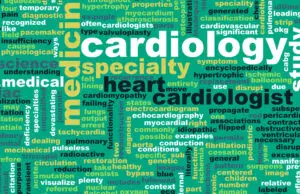Precision Matters: Top Medical Terminology Translations
In the complex world of healthcare, effective communication is essential. When language barriers exist, accurate medical terminology translation becomes paramount. This page explores the significance of medical terminology translation, highlighting its role in ensuring patient safety, improving healthcare outcomes, and facilitating global collaboration among medical professionals.
Ensure Accuracy: Expert Medical Translation Services
Ensuring Patient Safety: Medical terminology translation plays a crucial role in ensuring patient safety. Healthcare providers must accurately understand and interpret patient medical records, prescriptions, and treatment plans. Any mistranslation or misinterpretation could lead to serious consequences, jeopardizing patient well-being. By employing skilled medical translators who possess expertise in both the source and target languages, healthcare organizations can minimize the risk of errors and enhance patient safety.

Empowering Healthcare: Expert Medical Translation Services
Enhancing Healthcare Outcomes: Precise medical terminology translation contributes to improved healthcare outcomes. When medical professionals can comprehend and communicate in their native language, they can provide accurate diagnoses, recommend appropriate treatments, and effectively educate patients. Clear and concise translations enable patients to understand their conditions, follow treatment plans, and actively participate in their own healthcare journey. By bridging linguistic gaps, medical terminology translation empowers patients to make informed decisions and promotes better health outcomes.
Breaking Barriers: Trusted Medical Translation Solutions
Facilitating Global Collaboration: In today’s interconnected world, collaboration among medical professionals from different countries is increasingly common. Medical terminology translation enables seamless communication and collaboration across borders. With accurate translations of research papers, clinical studies, and medical guidelines, healthcare professionals can access global knowledge, share best practices, and collectively advance medical science. By breaking down language barriers, medical terminology translation fosters international cooperation, facilitating the exchange of ideas and innovation in healthcare.
Preserve Clarity With Expert Medical Terminology Translations
Specialized Expertise: Medical terminology translation requires more than fluency in multiple languages. It demands specialized knowledge of medical terminology, anatomy, pharmacology, and healthcare practices. Translators must possess a deep understanding of the medical context and stay updated on evolving terminologies. A skilled medical translator ensures that the intended meaning and nuances of medical terms are accurately conveyed in the target language, preserving the integrity of the original message. By employing translators with medical expertise, healthcare organizations can maintain the highest standards of accuracy and professionalism in their translated materials.
Flawless Communication: Trusted Medical Terminology Translations
Effective medical terminology translation goes beyond linguistic accuracy; it also requires cultural sensitivity. Healthcare is influenced by cultural norms, beliefs, and practices, which may differ from one region to another. Translators who are knowledgeable about both the medical and cultural aspects can adapt translations to suit the target audience, ensuring that the message is not only accurately conveyed but also culturally appropriate. By respecting and incorporating cultural nuances, medical terminology translation promotes patient-centered care and facilitates positive patient-provider relationships.
Bridge the Gap: Professional Medical Terminology Translations
Conclusion: Medical terminology translation serves as a vital bridge in healthcare, promoting patient safety, improving healthcare outcomes, facilitating global collaboration, and ensuring cultural sensitivity. Accurate translation of medical documents, patient records, and research materials plays a pivotal role in delivering high-quality healthcare services worldwide, transcending language barriers for the benefit of patients and medical professionals alike.

